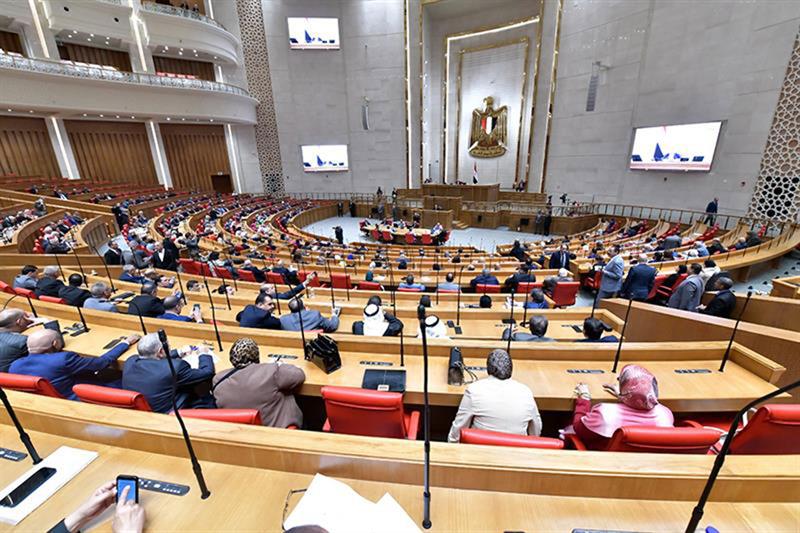
Registration Opens for SAF 2025: International STEAM Azerbaijan Festival Welcomes Global Youth
The International STEAM Azerbaijan Festival (SAF) has officially opened registration for its 2025 edition!

Cairo – Egypt is embarking on one of its most ambitious education reforms in decades, replacing the long-standing Thanaweya Amma system with the new Egyptian Baccalaureate Certificate. The reform, which begins in the 2025–2026 academic year, aims to align Egyptian education with international standards.
For decades, Thanaweya Amma has relied on a single high-stakes exam to determine university admission. Critics argue this system encouraged rote memorization and fueled a booming private tutoring industry. In contrast, the new Egyptian Baccalaureate, introduced by the Ministry of Education under Minister Mohamed Abdel-Latif and approved by the Egyptian Cabinet, draws inspiration from international models like the IB and French Baccalaureate, emphasizing specialization, skill development, and diverse assessment methods.
The Baccalaureate replaces the one-shot exam with continuous assessment over two years, allows students to specialize in chosen fields rather than studying dozens of unrelated subjects, and offers multiple exam opportunities to improve scores, thereby spreading out the pressure.
According to Ministry officials, the new system remains optional in public schools for now, giving students the choice between the Baccalaureate and Thanaweya Amma. This phased rollout aims to ensure fairness and allow time for adjustment. Nonetheless, some educators, like Hussein S., a senior English teacher in Qalyubia governorate, have urged caution:
“The ministry should have tested the system in selected schools across governorates first, and only expanded it if it proved successful, rather than committing nationwide and risking having to backtrack,” he told Sky News Arabia (Sky News Arabia).
The new Egyptian Baccalaureate system marks a clear shift from the old one-size-fits-all approach of Thanaweya Amma to a more flexible, specialized, and student-centered model. Instead of studying dozens of subjects all at once, students now follow a streamlined curriculum that emphasizes core general knowledge in early years and focused specialization in later years. This structure is designed to better prepare students for higher education and their future careers by allowing them to concentrate on the fields that match their interests and strengths.
This shift is reflected in the system’s structure, which spans three academic years and balances broad learning with focused specialization. The Baccalaureate runs for three academic years:
In Grade 11, students study four specialized subjects based on their chosen stream, along with core subjects like Arabic, Egyptian history, and a first foreign language. In Grade 12, they take three specialized subjects plus one common subject required for all specializations, religious education, a major reduction from the heavy Thanaweya Amma load. (Ahramonline, Enterprise).
Significant changes have been introduced to exam rules under the Egyptian Baccalaureate system. One major shift allows students to retake exams in the same subject multiple times to improve their grades, replacing the previous one-chance format. Each retake requires a small fee of 200 Egyptian pounds (4 USD), although students from low-income families are exempted. However, the passing grade has been raised from 50% to 70%, a change that has caused concern among some parents. While the option to retake exams is welcomed by many, there are worries that the higher passing mark may increase pressure on students (Sky News Arabia).
The Baccalaureate system represents a major shift in secondary education, moving away from traditional memorization and one-time high-stakes exams toward a more balanced, flexible, and student-centered approach. This reform aims to reduce student stress, lighten the curriculum load, and align Egypt’s education system with international standards, while giving students more opportunities to succeed. The System's main benefits include:
The Egyptian Baccalaureate promises a lighter academic load, more choice, and multiple chances for success, but as with any major reform, its true impact will only become clear in the classrooms over the next few years.
Share

Registration Opens for SAF 2025: International STEAM Azerbaijan Festival Welcomes Global Youth
The International STEAM Azerbaijan Festival (SAF) has officially opened registration for its 2025 edition!

Join the Edu-live Internship Program!
Are you passionate about journalism, education, science, as well as global study and development opportunities? Do you want to be part of a dynamic media platform that brings educational and scientific news and stories to life from around the world?

Young Leaders Union Conference 2025 in Paris (Fully Funded)
Join Global Changemakers in Paris! Fully Funded International Conference for Students, Professionals, and Social Leaders from All Nationalities and Fields

Yer yürəsinin daxili nüvəsində struktur dəyişiklikləri aşkar edilib
bu nəzəriyyənin doğru olmadığı məlum olub. Seismik dalğalar vasitəsilə aparılan tədqiqatda daxili nüvənin səthindəki dəyişikliklərə dair qeyri-adi məlumatlar əldə edilib.

An mRNA cancer vaccine may offer long-term protection
A small clinical trial suggests the treatment could help keep pancreatic cancer from returning

Lester B Pearson Scholarship 2026 in Canada (Fully Funded)
Applications are now open for the Lester B Pearson Scholarship 2026 at the University of Toronto!